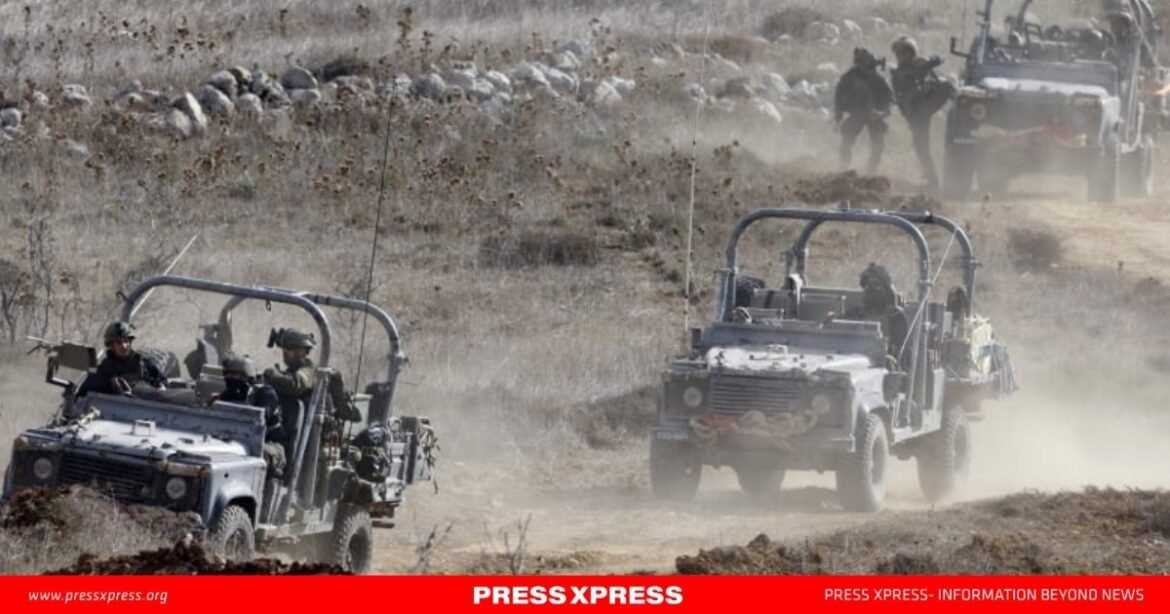Israeli Defense Minister Yoav Gallant has instructed the military to “prepare to remain” in the UN-patrolled buffer zone along the Golan Heights for the winter, as Syria’s political upheaval continues to unsettle the region. This moves to solidify Israeli control over the strategic plateau, which separates Israeli and Syrian forces, marks a significant escalation in the long-standing conflict over the Golan Heights.
On Sunday, Israel took control of the demilitarized zone shortly after Syrian rebels ousted President Bashar al-Assad. The military move has drawn swift international criticism, with the United Nations condemning Israel’s breach of the 1974 disengagement agreement that established the buffer zone. Despite this, Israel’s close ally, the United States, has defended the action, framing it as an exercise of Israel’s right to self-defense amid the regional chaos.
The UN peacekeeping force, UNDOF, which monitors the ceasefire line, voiced concerns on Friday, stating that Israel had violated the 1974 armistice by moving into the buffer zone. While the international community remains divided, UN Secretary-General António Guterres has expressed alarm, calling Israel’s actions a direct challenge to Syria’s sovereignty and territorial integrity.

Military Operations Intensify Amid Regional Instability
Since Assad’s ousting, Israel has carried out hundreds of airstrikes across Syria, targeting military sites including chemical weapons depots and air defense systems to prevent them from falling into rebel hands. Israel’s military stance has been that these operations are essential to prevent further destabilization along its northern border.
Prime Minister Benjamin Netanyahu’s office justified the buffer zone seizure as a necessary step to fill the “security vacuum” left by Assad’s collapse. “This deployment is temporary,” Netanyahu’s office emphasized, “until a force that adheres to the 1974 disengagement agreement can be reestablished.” Israel has held the Golan Heights since it was captured during the 1967 Arab-Israeli War, a territorial acquisition that remains a point of contention between the two countries.
In 1981, Israel annexed the Golan Heights, a move that has only been recognized by the United States. Israel has framed its continued presence in the region as a security measure, especially in light of the ongoing uncertainty in Syria.
Defense Minister Gallant underscored the importance of maintaining a robust Israeli presence in the region, particularly at the summit of Mount Hermon, which offers a strategic vantage point over Syria, Lebanon, and Israel. “It is critical for our forces to maintain readiness on-site, especially as they prepare for the challenges posed by the harsh winter conditions,” Gallant’s office said in a statement.
Strategic Implications and International Reactions
As Israel strengthens its position in the Golan Heights, the geopolitical situation remains fluid, with Israel closely monitoring the evolving situation in Syria. U.S. National Security Adviser Jake Sullivan described the Israeli incursion as “logical and consistent with Israel’s right to self-defense,” but stressed that the presence should be “temporary.”
Experts suggest that Israel’s military presence in the region could be prolonged. Michael Horowitz, a geopolitical analyst with Le Beck, a Middle East-based security consultancy, indicated that Israeli forces are likely to remain in the buffer zone for several months, primarily focusing on surveillance and intelligence-gathering. “The duration of the operation will hinge on the stability of Syria’s new regime and how it aligns with Israel’s security concerns,” Horowitz said.
Horowitz also pointed to the strategic significance of Mount Hermon, a high-altitude location that dominates not only the Golan Heights but also provides critical oversight of neighboring Lebanon and Syria. Given the chaos in Syria and the current political landscape in Israel, Horowitz suggested that the Israeli government may find it increasingly difficult to withdraw from the region, even in the longer term.
As Israel fortifies its position in the Golan Heights, the international community is left grappling with the broader implications of the ongoing military presence. While concerns about regional stability mount, Israel continues to emphasize its right to safeguard its borders in the face of Syria’s ongoing turmoil.


